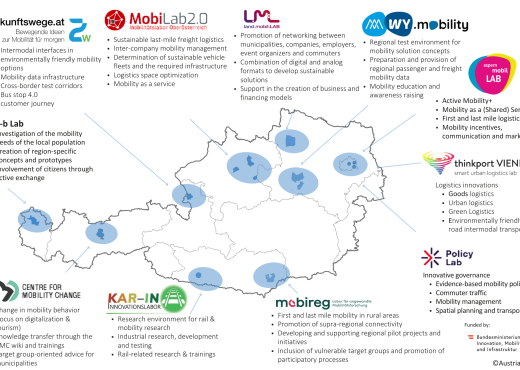The cross-cutting topic of mobility affects a wide range of areas of life and politics, such as spatial planning, health, infrastructure, propulsion technologies, behavioural sciences and logistics. To mobilize actors from such diverse fields for mission-oriented innovation policies, the search for solutions to concrete problems in concrete spatial or systemic contexts must be in the foreground.
The mobility transition not only ensures quality of life and supply in changing economic and ecological conditions, it also increases competitiveness, employment and international demand for Austrian innovations.
The strategic framework for this is provided by the Research, Technology and Innovation (RTI) Mobility Strategy with impact-based measures such as
- the targeted allocation of RTI funding
- forging alliances and implementation partnerships
- the facilitation of exploration spaces as well as
- European and international positioning.
This results in the necessary technological, social and organizational innovations in the field of urban and regional mobility, digitization and technology development for a sustainable transformation of the mobility system.

